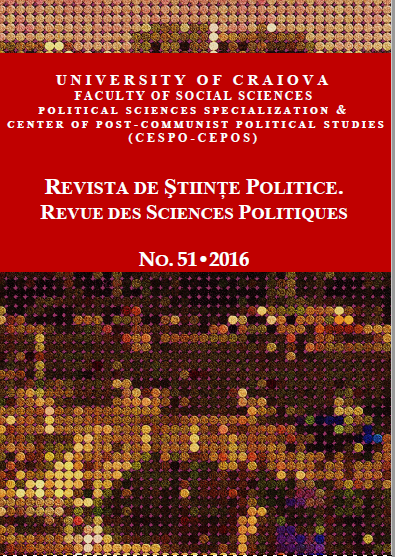Aspects regarding the oppression of the religious cults during the communist regime in the files of the Romanian Securitate
Aspects regarding the oppression of the religious cults during the communist regime in the files of the Romanian Securitate
Author(s): Gabriela SaftaSubject(s): Political history, Government/Political systems, Politics and religion, History of Communism
Published by: Editura Universitaria Craiova
Keywords: communism; Securitate; political police; religious cults; opression;
Summary/Abstract: The relationship between the State and the religious cults in Romania during the communist regime is a new subject among the preoccupations of the historians and it is still a controversial subject from the perspective of the complex realities that have determined the coordinates of this relationship. The problemis insufficiently investigated, but with the opening access to the documents in the archives of C.N.S.A.S., the study of the files reveals new problematic aspects of the matter. The state control over the activity of the cults and over the religious behavior was based on a new legislation, with the help of the cult inspectors, employees of the Ministry of Cults, in charge with the surveillance of every cult administrative unit, from parish to Patriarchy. In addition to that, there was an unofficial control exercised through a web of informers and collaborators of the institution named Securitate, founded by Decree no. 221/ August, 30, 1948. After the 6th of March 1945, beginning with the first months after its installation, the new govern led by Petru Groza, ordered numerous arrests among the clergy of all confessions. Although many of them were released the same year, some remained suspects and some of them, probably under the constant threat, accepted later the collaboration with the Securitate. The political views of the suspects before August, 23, 1944 were the main reason, but also a pretext for the repression against some outstanding representatives of the cults. Using as research method the analysis of documents in the files of C.N.S.A.S. archives, this study reveals the means of repression of the communist authorities against the cults, the state’s approach of the spiritual and religious life as a constant threat to the regime, and the mechanisms through which some personalities as Mina Dobzeu, Iuliu Hîrţea, Dumitru Bejan and Mihaly Godo were surveilled, condemned and prosecuted, and others, such as Gheorghe Moisescu collaborated with the Securitate.
Journal: Revista de Științe Politice. Revue des Sciences Politiques
- Issue Year: 2016
- Issue No: 51
- Page Range: 109-119
- Page Count: 11
- Language: English

